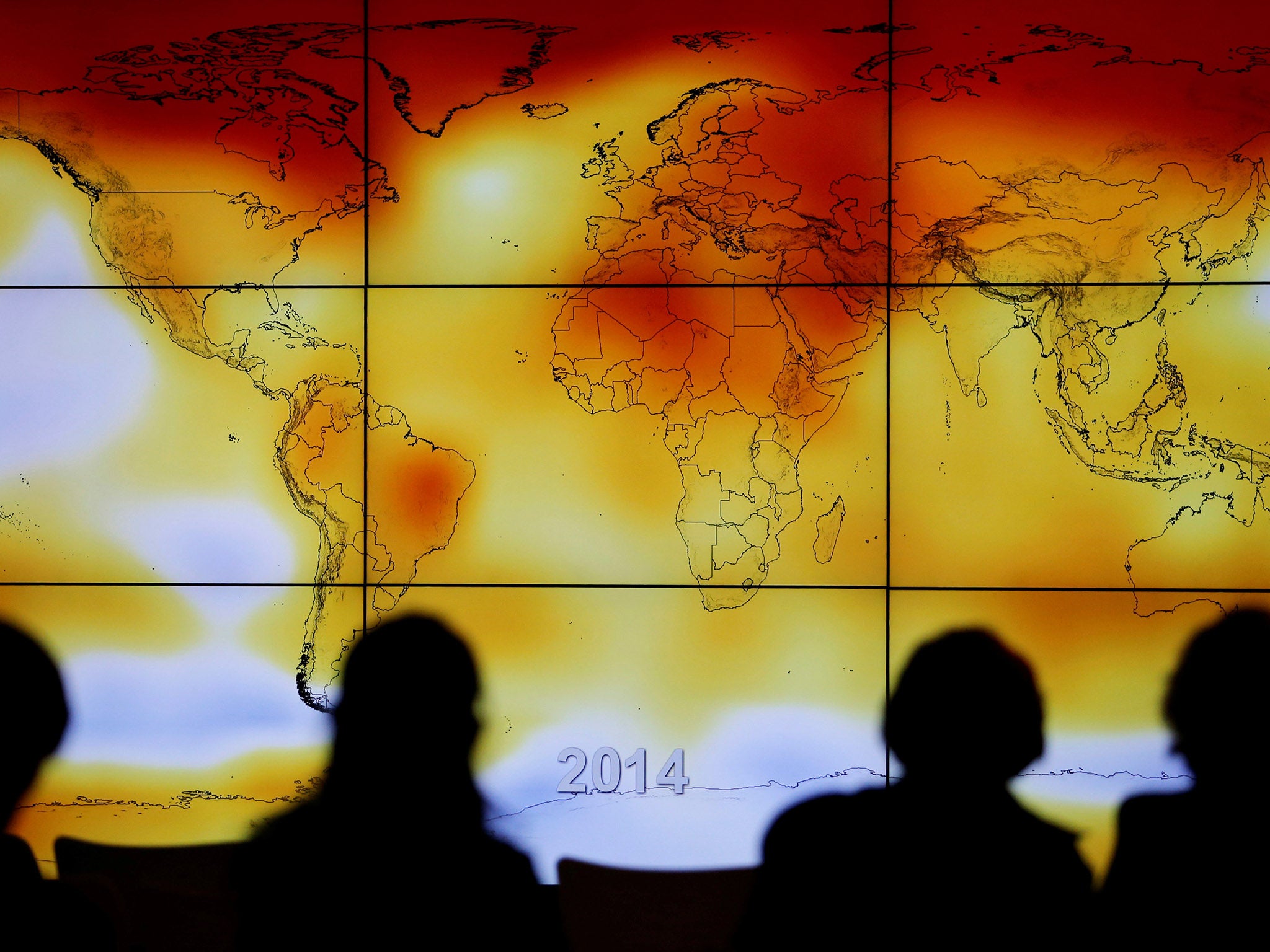Trump administration releases report confirming 2016 as hottest year since records began
This is the first comprehensive climate report released since the US President's inauguration

The Trump administration has released a report confirming that 2016 was the hottest year since records began.
The National Oceanic and Atmospheric Administration (NOAA), a leading environmental agency which is part of the US federal government, found that global temperatures were warmer last year than in 137 years of recordkeeping for a third consecutive year - surpassing the previous record of 2015.
Their State of the Climate report confirmed last year's heat resulted from the combined influence of long-term temperature rising and a strong El Niño early in the year.
Scientists aimed to show patterns and trends of the global climate system and concluded that the findings confirmed the warming of the planet.
Experts previously said 2016 had broken the record for the hottest year ever but the new report is significant since this is the first comprehensive climate report released under Donald Trump.
The US President has repeatedly dismissed man-made climate change as "a Chinese hoax" and he sent shockwaves through the international community when he announced the US would withdraw from the Paris Agreement.
The report was published in partnership with the NOAA's National Centres for Environmental Information, another government agency which describes itself as the US' leading authority for environmental information, and the American Meteorological Society.
A total of 468 scientists from 64 countries who worked on the report concluded: "Major indicators of climate change continued to reflect trends consistent with a warming planet".
According to the NOAA, tens of thousands of measurements from multiple independent datasets were used to provide a detailed update on global climate indicators, notable weather events, and other data collected by environmental monitoring station and equipment on land, water, ice and in space.
Climate indicators include various types of greenhouse gases concentration, temperatures throughout the atmosphere, ocean and land, sea level, ocean salinity and snow cover to name a few.
The data compiled in the report showed 2016 was overall a year of records.
Scientists found that the increase in CO2 concentration rose to new record highs and they recorded the largest annual increase observed in the last 58 years.
10 photographs to show to anyone who doesn't believe in climate change
Show all 10According to the report, the global annual average of atmospheric CO2 concentration was 402.9 parts per million (ppm) in 2016 and surpassed the 400ppm mark for the first time, when compared to ice core records dating back as far as 800,000 years.
Sea surface temperatures were also the highest on record and have increased by 1.62 degrees between 2000 and 2016.
Meanwhile global sea levels reached new highs last year and was on average about 82 mm (3.25 inches) higher than the 1993 level. This was the sixth consecutive year global sea level has increased compared to the previous year.
Scientists also observed an increase in extreme water cycles around the world with many parts of the globe experiencing major floods while other are facing severe droughts.
In the Arctic, land surface temperature continues to rise while in the Antarctic the ice extents is at record low.
2016 was also the 37th consecutive year of overall retreat of the glaciers around the Earth and tropical cyclones were well above average with 93 named in 2016 compared with an average of 82 storm between 1981 and 2010.
Subscribe to Independent Premium to bookmark this article
Want to bookmark your favourite articles and stories to read or reference later? Start your Independent Premium subscription today.

Join our commenting forum
Join thought-provoking conversations, follow other Independent readers and see their replies